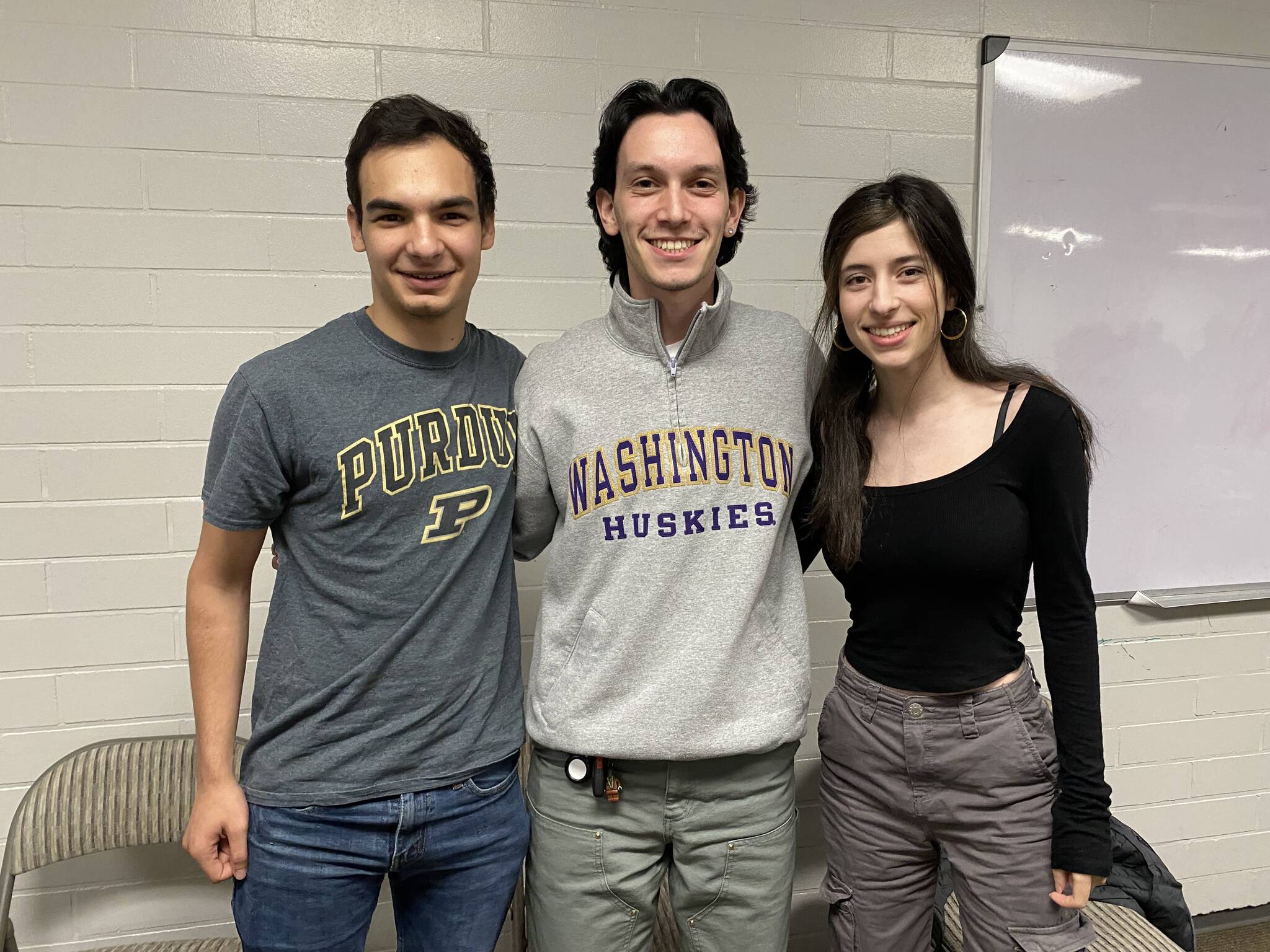By Ella Will, For the Reporter
On June 2, the Stroum Jewish Community Center (JCC) on Mercer Island hosted an Israeli Community Services at Jewish Family Service (JFS) panel titled “Jewish Students You Are Not Alone: What does it mean to be a Jewish and Israeli student in the current climate?”
The panel was aimed at high school families and featured three recently graduated or soon-to-be-graduated college students from around the country: Noam, who just graduated from Purdue University; Aner, who is graduating from the University of Washington (UW) in December; and Ophir, who graduated from University of Washington last year and is starting medical school. Special guests on the panel were UW Professor Naomi Sokoloff, Chair of the Middle Eastern Languages and Cultures and Director of Israel Studies, and UW Professor Hadar Khazzam-Horovitz of Middle Eastern Language and Cultures.
The first topic introduced to the panelists was the college admissions process. They were asked how they chose their schools, anything they regret in their process, what they recommend for students to do in high school, and what to highlight on an application. All panelists emphasized the importance of the Common Application essay and the supplemental essays each school provides, as that is where students can differentiate themselves.
“Your statistics and extracurriculars get you considered, your essay gets you in. You will have opportunities at every school to succeed,” Noam said.
Even though essays are important, do not let them cause unnecessary stress. “The easy part is you know yourself better than anyone else,” Aner said.
Following October 7 and amid the current Israel-Hamas war, Jewish students should be wary of where they apply and take into consideration the safety and atmosphere for Jewish students at every school. Though emotions are more complicated, the panelists said they feel physically safe at school.
Aner walked through the encampment at UW a few weeks ago when it was still in place.
“I didn’t feel unsafe, but it was weird and uncomfortable. It is a scary situation because so many people have opposing views,” he said. Aner was disheartened by the number of students in the encampment who had no real idea of what they were protesting. He spoke about what it has been like to discuss Israel in conversations with his peers, stressing the importance of prioritizing safety.
“If I am in a position to have a constructive conversation where we can speak about what’s going on and have no hostility, that’s great. At the same time, I’m picking and choosing my conversations so as not to escalate anybody or endanger my safety. Be the bigger person and keep moving forward,” he said.
On the same topic, Ophir shared a bad experience she had with a professor a few years ago and how many people she knows have been unfollowing her on social media just because she is Israeli, even though she doesn’t post. Her advice for reaching out to people is not to attack them, but to approach them with kindness so that they listen and are willing to have a discussion.
As a Jewish and/or Israeli student, “You are always going to be out there. Just be smart with it. Find your community,” Ophir said.
When encountering antisemitism on campus, the best thing to do is report it. Many schools have incident report forms, and Chabad/Hillel, StandWithUs, and the Anti-Defamation League (ADL) have online resources about combating hatred.
“I would urge students to report [antisemitism] because it might help another student down the road,” Professor Sokoloff said.
At the end of the panel, the panelists and special guests provided their most crucial guidance for Jewish parents and students when navigating the college process.
“As a parent, you need to talk to your kids and prepare them for [antisemitic] encounters. They will be somewhat frequent, and I would prepare your kids for some of the nasty stuff professors say. As students, you have the power. Do not be afraid of a professor. If something happens, you need to talk about it,” Professor Khazzam-Horovitz said.
Professor Sokoloff urged students to sign up for Israel Studies classes, as the more interest that gets shown, the more opportunities professors will have to teach those courses.
The panel concluded with Professor Sokoloff’s announcement about an event on June 25. Hebrew novelist Maya Arad, whose novel “The Hebrew Teacher” was just translated into English, will speak at UW.
For more information about antisemitism in Seattle schools, visit www.stophateinschools.org to learn how to take action and view recent incident maps.


